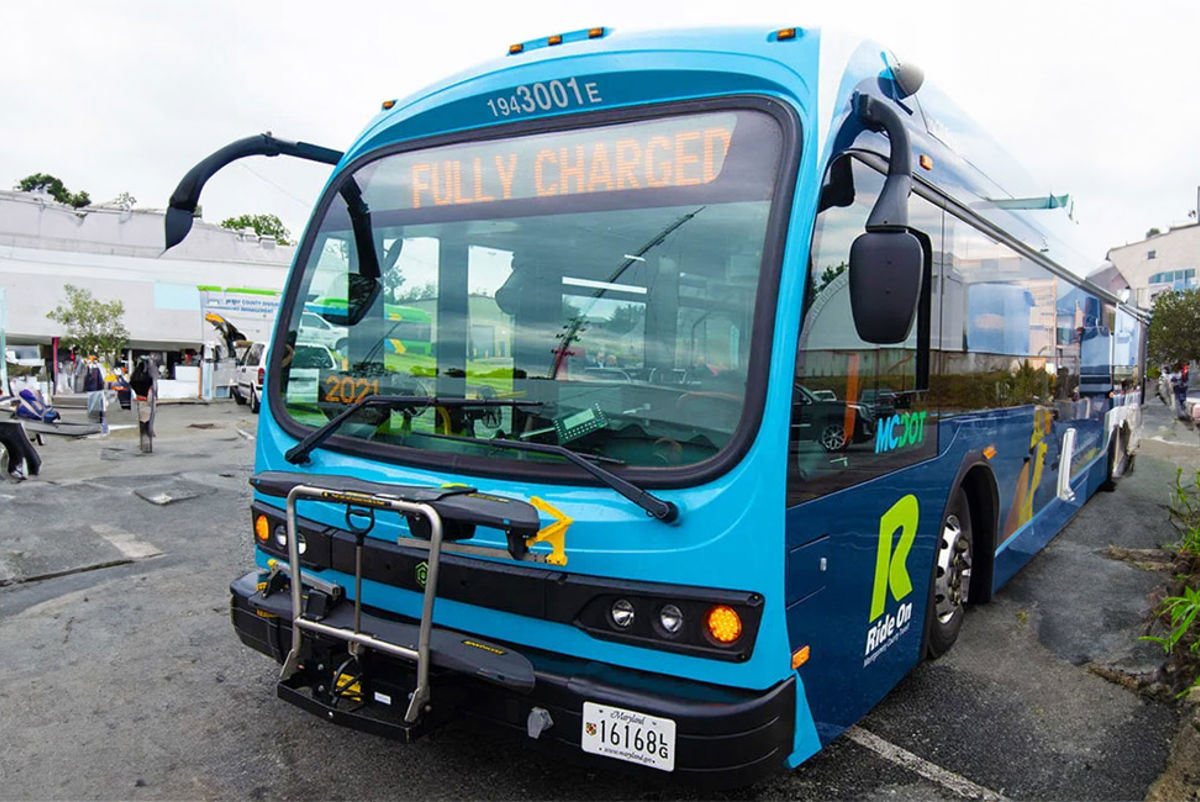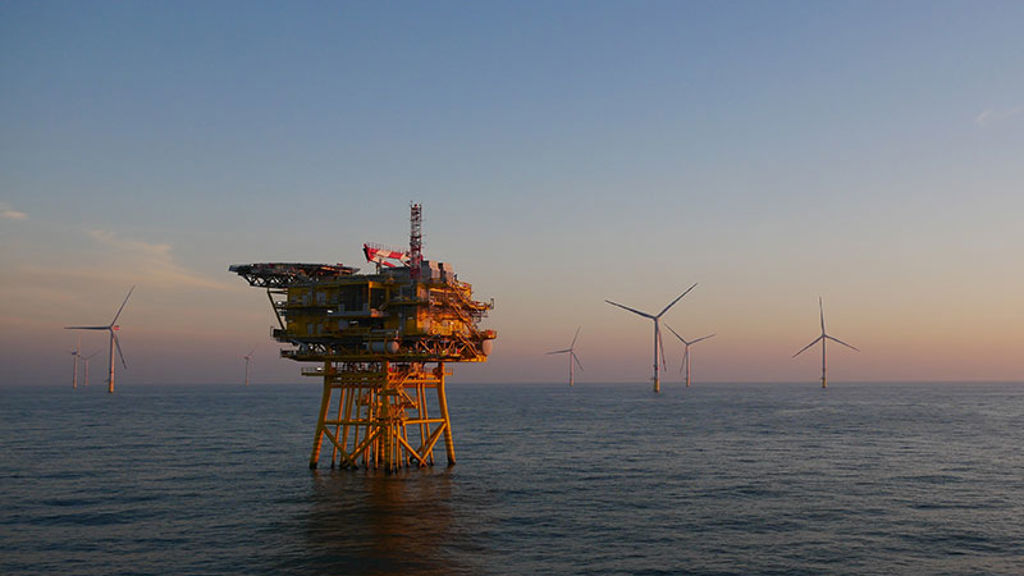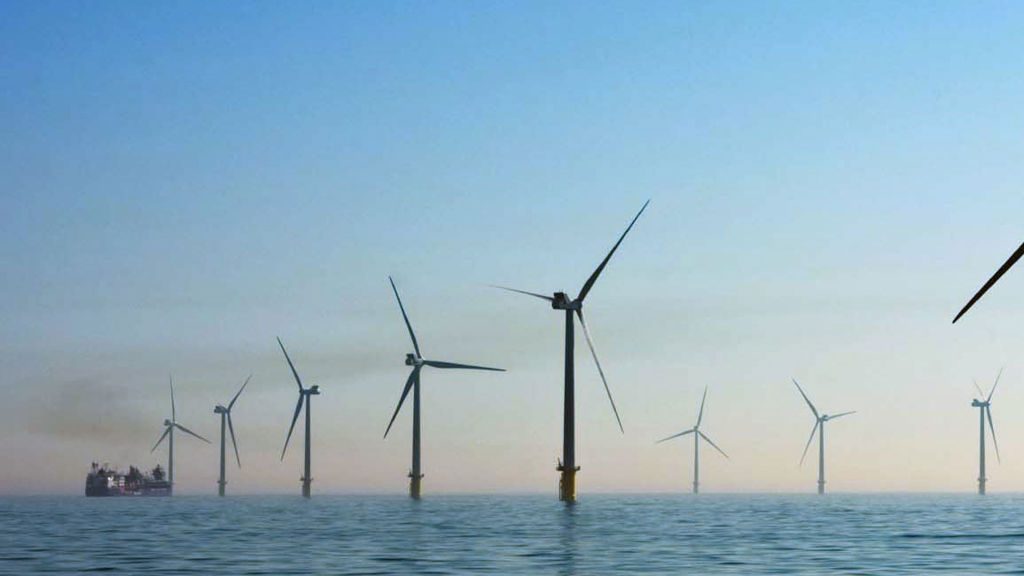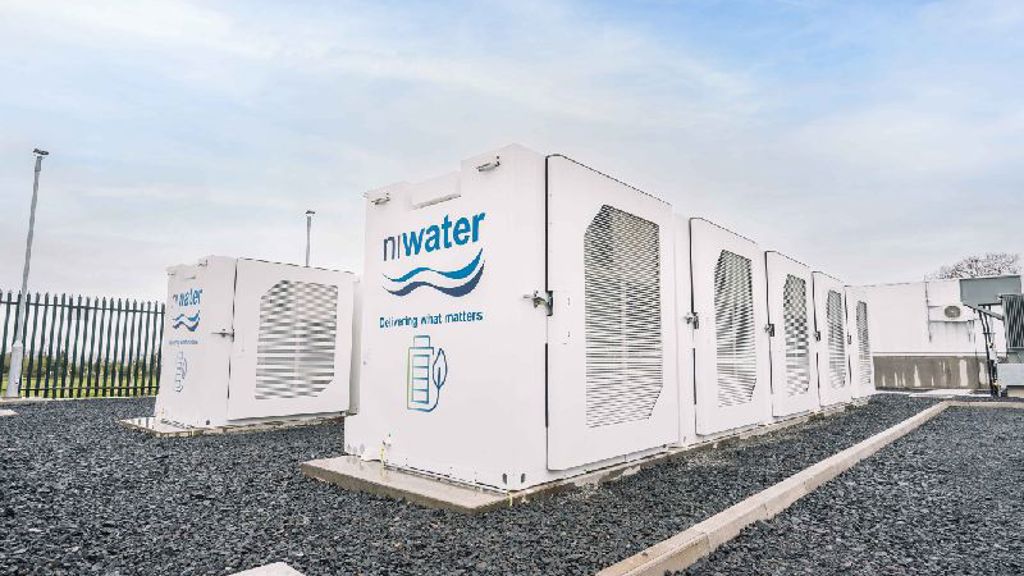Developing an integrated PV microgrid to power the electric bus fleet of the future in Maryland
Brookville Smart Energy Bus Depot

To help reach its goal for zero carbon emissions by 2035, Montgomery County in Maryland has embarked on a programme to electrify its bus fleet with an integrated renewable energy plus battery storage microgrid for resilient vehicle charging.
The Brookville Smart Energy Bus Depot will enable a 62 percent carbon emission reduction and a lifetime greenhouse gas benefit of 160,000 tons for the bus fleet powered by the microgrid. The county is already a leader in microgrids, creating prototype Energy as a Service (EaaS) contracts and development procedures for local governments to study and use.
For the Brookville Smart Energy Bus Depot, AlphaStruxure engaged Arup’s engineering capabilities to upgrade the existing bus facility's site infrastructure for vehicle electrification and connect all components for microgrid operations. The 6.5 MW microgrid includes bus-height solar canopies, on-site energy generation, battery energy storage, and over 4.14 MW of charging capacity. In addition to microgrid equipment and bus chargers, the system also includes 2 MW of photovoltaic panels on an overhead canopy, battery energy storage system (BESS) and on-site energy generators to achieve 100% resilience to severe weather and grid outages. Microgrid interconnectivity is a complex enterprise, and the transition of bus fleets from diesel to electric requires uninterrupted service. While the tools and products exist to build microgrids for bus fleet electrification, knowledge of this nascent industry, awareness of the rapid changes within the market, and coordination among the various vendors are critical for successful microgrid design and operations.
With the transition to battery electric buses, each site, region, and transit agency has its own unique requirements, demanding custom, highly coordinated solutions for microgrids. Arup was able to draw on a multidisciplinary engineering team experienced in infrastructure and fleet electrification to engineer a solution for Brookville to optimise operations and adapt to challenging site conditions. In addition to providing microgrid electrical design, our services included site civil engineering for stormwater compliance and permitting, structural and geotechnical engineering to support equipment on the constrained site, plumbing engineering for generator connections, microgrid power studies, and utility coordination, including interconnection agreements.

Adapting the site for electrification
Working with an active bus fleet facility that remained operational during construction, Arup's team quickly pivoted to adapt the design to existing conditions and site constraints. This included coordination of existing stormwater management facilities, implementation of equipment structures to reduce the loss of bus parking spaces and working closely with the photovoltaic design team for maximum conduit and trenching efficiency across the site. Adjacent to Meadowbrook Park and Rock Creek stream, it was important to minimise site changes that would reduce existing permeable green space. A steel deck structure on helical piers was designed to hold the 70-ton BESS container, and a gabion wall solution was utilised to level an existing sloped portion of the parking area for the generators.
Sustainable, resilient electrification
We were able to bring our previous experience with bus electrification infrastructure, energy storage and renewable energy systems to the Brookville Smart Energy Bus Depot. The on-site generation components provide resilience and reliability to ensure uninterrupted charging availability for the bus fleet at all hours. Additionally, the microgrid controls will allow multiple operational modes, so the operators can switch between island-mode and grid connectivity. For example, if there are periods when the battery is depleted or the local electric utility grid is down, or generating equipment has maintenance being completed, there are always additional modes to ensure the required fleet vehicles can be charged.
A challenge for electrifying bus fleets is the rapid influx of manufacturers, vendors and competitive products in the market, which was further exacerbated by Covid-19 pandemic supply chain interruptions. Arup was able to respond to equipment changes beyond those originally selected, resulting in improved microgrid performance and increased flexibility to meet future depot demands. The team also coordinated various manufacturers to ensure optimal interconnectivity and regulatory compliance. Additionally, Arup’s knowledge of the local permitting process and previous experience with the local utility proved to be key to effectively moving the electrified bus depot forward.
Electrification brings multiple benefits
As it continues to expand its electric fleet and charging infrastructure, Montgomery County may see advantages beyond reduced carbon emissions and a resilient, reliable bus system. Residents along bus routes served by electrified vehicles will experience cleaner air, and both residents and riders will enjoy quieter buses inside and out. The lower operational costs of an electric bus fleet from the savings on maintenance and diesel fuel, will make funds available to continue procuring additional electric buses.
Paving the way
The Brookville Smart Energy Bus Depot demonstrates a sustainable path for other municipalities and the private sector, allowing them to transition towards electrification and reap the value of a sustainable, resilient, and cost-effective transit system.
As well as cutting carbon emissions, the Brookville Smart Energy Bus Depot ensures a reliable public transportation system for the County. It enables uninterrupted bus services during any long-term power outages caused by severe weather, as well as during any short-term disturbances or perturbations of the utility grid. The county currently has a four-bus pilot program with the plan to increase the fleet in phases up to 70 buses in order to support the Brookville location. Working towards the County's 2035 community-wide carbon neutrality goal, this microgrid implementation will be the first major step in reducing public transportation emissions.
The Brookville Smart Energy Bus Depot’s microgrid and charging infrastructure opened on October 31, 2022.
SunPower
What we delivered
-
Using smart energy solutions to reduce carbon emissions by 62% on the bus network in Montgomery County, Maryland
-
Connecting multiple energy sources to power a sustainable microgrid
-
Realising secondary benefits in noise and emissions reduction for a cleaner environmental solution
Get in touch with our team
Projects
Explore more energy projects

Powering Scotland's future: how offshore wind farms will accelerate renewable energy
Caledonia Offshore Wind Farm, United Kingdom

Accelerating the development of global offshore wind infrastructure
Offshore wind farms

Arup applies advanced site characterisation approaches to Dutch Nederwiek Site I
Nederwiek Wind Park Site I, Netherlands

Innovative energy storage powers Northern Ireland Water’s decarbonisation journey
Northern Ireland Water BESS, United Kingdom
Get in touch with us
If you'd like to speak to one of our energy experts about any of the issues raised on this page or a potential collaboration then please get in touch by completing the form.


